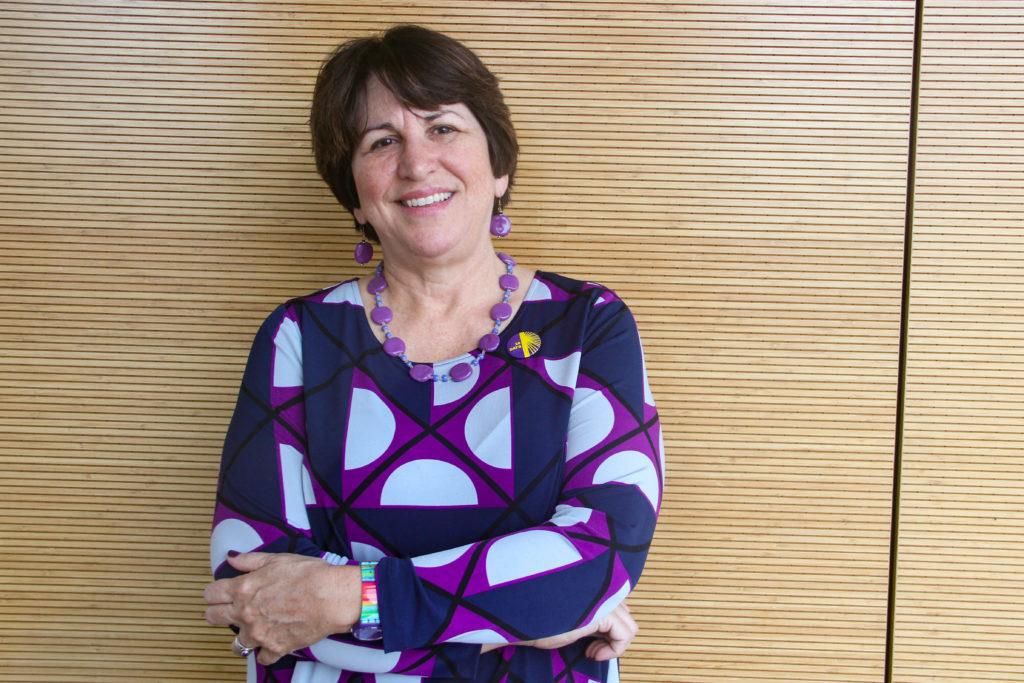One-third of women and girls living in South Sudan have experienced sexual violence from someone who is not their partner, according to a study from GW’s Global Women’s Institute released last week.
The report, which is the first of its kind to study sexual violence in South Sudan, found that women in some areas of the country face alarmingly high rates of sexual, physical and emotional violence on a day-to-day basis because of an ongoing national conflict and the population’s culture.
In a study of more than 2,000 women and 500 men, the research found one in three South Sudanese women had been victimized by someone who was not their partner and 60 percent of sexual violence overall was directed at girls 18 years old or younger.
But the most common source of abuse was husbands or partners. More than 50 percent of women who had a domestic partner reported some form of physical or sexual violence, according to the study.
The study began in 2014 and was spearheaded by Manuel Contreras-Urbina, a professorial lecturer of global health, and Mary Ellsberg, a professor of global health and the founding director of GWI.
South Sudan gained independence in 2011, but the new country erupted into conflict in 2013, pitting government and opposition forces against each other in the ongoing South Sudanese Civil War.
Contreras-Urbina said studying a war-torn area plagued by violence and conflict required extra caution while completing field research. The researchers interviewed women and men in South Sudan about their experiences with sexual violence.
“To carry out research on violence against women and girls is very complicated because there are a lot of ethical and methodological issues that need to be considered, ” he said. “But to do this in a conflict area is even more challenging.”
Contreras-Urbina said researchers worked in three primary locations: Juba, the capital of South Sudan; Rumbek, a rural town north of Juba and civilian displacement camps near Juba. The research focused on a population-based survey, relying heavily on interviews and discussions with survivors and members of the community to find out how many women and men had experienced both domestic partner violence and sexual violence.
GWI worked in collaboration with the International Rescue Committee, a nonprofit organization that responds to humanitarian crises, and CARE International, a nonprofit that focuses on women and girls.
Launched in 2012, GWI aims to expand research on women’s issues through international partnerships.
GW students were not hired to work on the project through the Global Women’s Institute but were involved through Forcier Consulting, a research, monitoring and evaluation firm.
Globally, Contreras-Urbina said he wants to draw the attention of leaders and key groups like the United Nations to the plight of women and children in South Sudan.
“We expect that with the information that we are presenting that we are going to get more attention of the leaders in the world and UN agencies and other key actors to basically pay more attention to women and girls in South Sudan at the moment,” he said.
He said the research found adolescents in the nation are suffering the most. The project will strengthen the efforts of currently weak women’s rights nonprofit organizations by drawing attention to the issue of sexual violence, Contreras-Urbina said.
“On a national level, we expect that the international NGOs and national NGOs working in South Sudan will have information for them to know what to prioritize in terms of solutions,” he said.
Both Ellsberg and Contreras-Urbina said the study helped them develop a skill-set that will give guidelines and suggestions to future researchers conducting studies in conflict zones, where it is often challenging to survey those who have experienced incidents of violence. Contreras-Urbina said the group is looking to use the toolkit model in Uganda and Lebanon next year.
Ellsberg said the project was a collaboration between two students and four staff members who helped analyze and collect data. Two of the students who worked on the project had previously interned in South Sudan, which gave them an advantage in analyzing both qualitative and quantitative data, she said.
The violence in South Sudanese culture is “pervasive,” Ellsberg said.
“We thought that the research could make a contribution both to the nascent government and the international community as they were developing a strategy to improve the life of women and girls,” she said.
Rohan Kandeshwarath contributed reporting.





